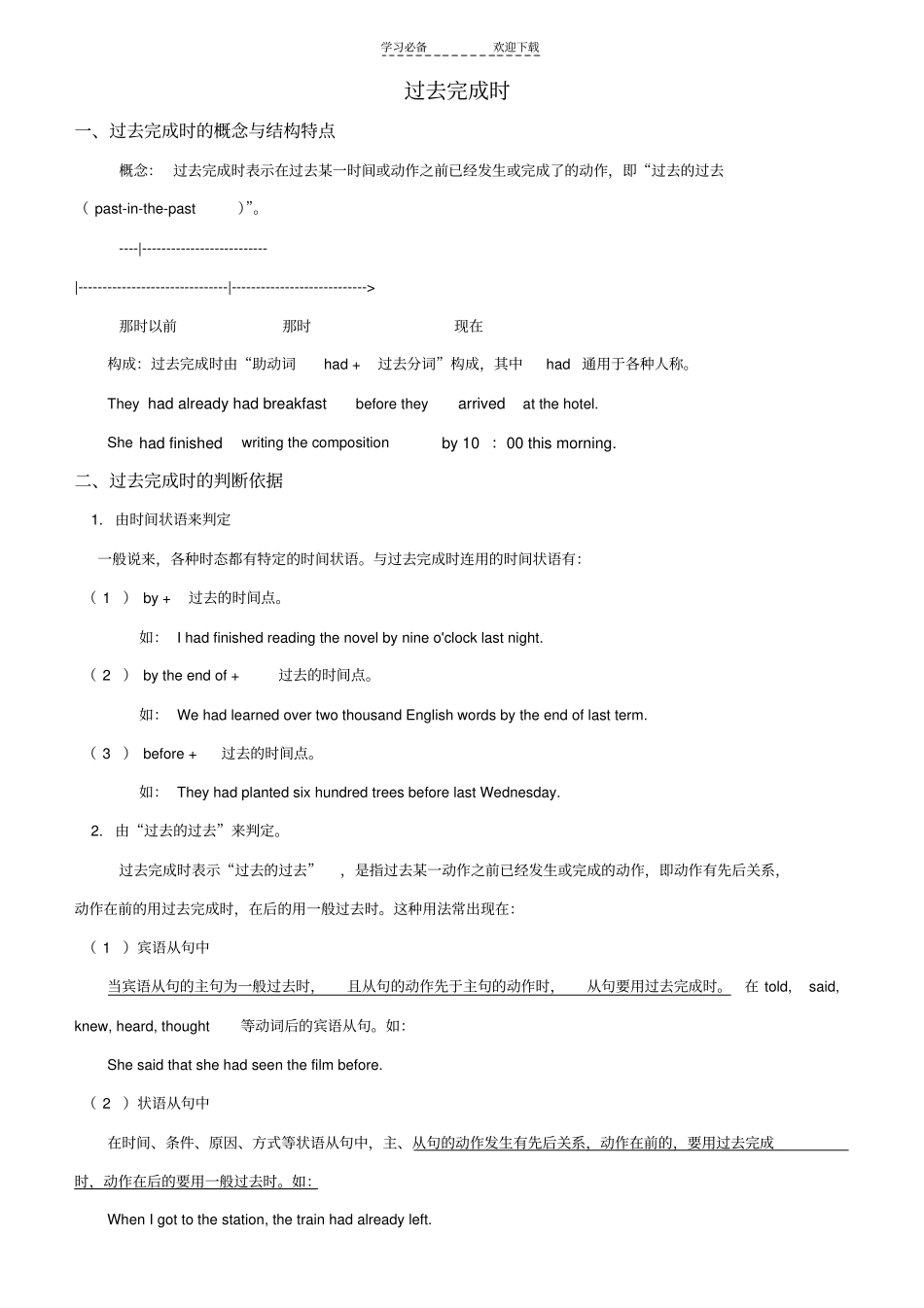学习必备欢迎下载过去完成时一、过去完成时的概念与结构特点概念: 过去完成时表示在过去某一时间或动作之前已经发生或完成了的动作,即“过去的过去( past-in-the-past )”。----|-------------------------- |-------------------------------|----------------------------> 那时以前那时现在构成:过去完成时由“助动词 had + 过去分词”构成,其中 had 通用于各种人称。They had already had breakfast before they arrived at the hotel. She had finished writing the composition by 10 :00 this morning.二、过去完成时的判断依据1. 由时间状语来判定一般说来,各种时态都有特定的时间状语。与过去完成时连用的时间状语有:( 1 ) by + 过去的时间点。如: I had finished reading the novel by nine o'clock last night. ( 2 ) by the end of + 过去的时间点。如: We had learned over two thousand English words by the end of last term. ( 3 ) before + 过去的时间点。如: They had planted six hundred trees before last Wednesday. 2. 由“过去的过去”来判定。过去完成时表示“过去的过去”,是指过去某一动作之前已经发生或完成的动作,即动作有先后关系,动作在前的用过去完成时,在后的用一般过去时。这种用法常出现在:( 1 )宾语从句中当宾语从句的主句为一般过去时,且从句的动作先于主句的动作时,从句要用过去完成时。在 told, said, knew, heard, thought等动词后的宾语从句。如:She said that she had seen the film before. ( 2 )状语从句中在时间、条件、原因、方式等状语从句中,主、从句的动作发生有先后关系,动作在前的,要用过去完成时,动作在后的要用一般过去时。如:When I got to the station, the train had already left. 学习必备欢迎下载After he had finished his homework, he went to bed. 注意: before, after 引导的时间状语从句中,由于 before 和 after 本身已表达了动作的先后关系,若主、从句表示的动作紧密相连,则主、从句都用一般过去时。如:Where did you study before you came here? After he closed the door, he left the classroom. ( 3 )表示意向的动词,如hope, wish, expect, think, intend,...


